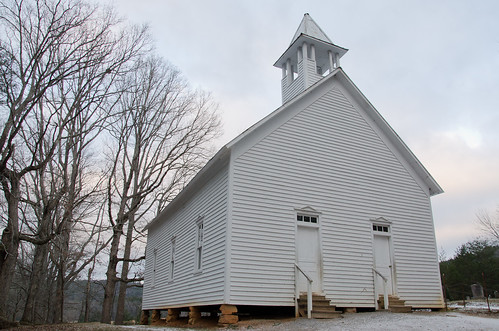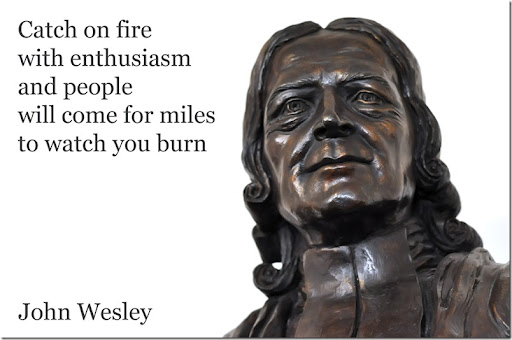I’m teaching a course at my church called Methodism 101. 27 people signed up and have been attending regularly.
The first night of class I was shocked that 27 people–of all ages–signed up for a course on Methodism that had a boring name attached to it. But there they were.

Before we began, I asked them to answer one of two simple questions on a notecard: “What is a Methodist?” or “What makes the Methodist church distinctive from others?”
It’s a simple question that is difficult to answer. People have been trying for centuries, and I haven’t found a concise answer that I love–yet.
I don’t have my own answer worked out either, but I’m working on defining what a Methodist is as I prepare and teach this class each week.
I’d love to read your answer to one of the two questions in the comments below!
Below are the responses I received from the class:
- A Methodist gives of themselves by helping others.
- The only thing I know is that the Methodist cross has like fire, I think, on it. But I don’t know what it means.
- It’s a mission church. It does more for the community and other places than any church I’ve been to. It makes you want to serve and volunteer.
- A Methodist practices social Christian doctrine in each community.
- Spiritual life intersects all areas of life and four factors are important – scripture, experience, reason and tradition.
- The Methodist church follows the teachings of John Wesley.
- It’s a body of believers in Christ that follows a “method” based on what someone’s activities were in college.
- It’s a good mixture of formal (Episcopal) and informal worship.
- I believe Methodism is a somewhat conservative religion (but less so than Baptist).
- A denomination comprised of former Baptists, Catholics, some Jews, Presbyterians and even Methodists–all believing in Jesus Christ as our Lord and Savior.
- It is a Christian church that is open to all, has open communion, and is mission oriented.
- A Methodist will speak to you in a liquor store. We believe God is not waiting to punish but to love.
- Of the beliefs I know, I agree with them. I attended both a Methodist and Catholic church for many years. My life is more meaningful being in a Methodist community.
- The Methodist church believes that grace is given freely by God–does not have to be earned–and it accepts anyone who believes in Jesus.
- We are open to all without prejudice(s).
- It seems to me the Methodists are very accepting and welcoming of all.
- The Methodist church follows principles and practices encouraged by John Wesley and other early leaders of the movement. It is open to anyone, very accepting, and diverse.
- The Methodist churches I have attended seem less “official” than other denominations. They’re more laid back and accepting. They’re also less judgmental.
- The open communion table separates Methodists from some of our Christian brothers.
You may have noticed some themes in these answers: mission oriented, John Wesley, openness to people of all Christian backgrounds, and welcoming.
What would you say?

